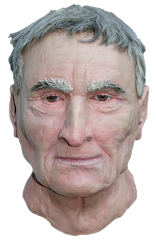 To go from Mathew’s gospel to Luke’s Gospel is like coming out of SS Peter and Paul’s Parish in Tamale and straight into Abu Abu Market (Biggest Market in Tamale).The Christianity that Luke presents is no longer a cause for martyrs to fight for, like in Marks church in Rome, nor is it only the obligation of the initiates to keep the new law given by the New Moses on the New Mt. Sinai in the Sermon on the Mount. Luke’s Message is a message of common sense for all people. He is the first humanist, whose writings take us right out of Israel into a world that the other evangelist never dreamt of.
To go from Mathew’s gospel to Luke’s Gospel is like coming out of SS Peter and Paul’s Parish in Tamale and straight into Abu Abu Market (Biggest Market in Tamale).The Christianity that Luke presents is no longer a cause for martyrs to fight for, like in Marks church in Rome, nor is it only the obligation of the initiates to keep the new law given by the New Moses on the New Mt. Sinai in the Sermon on the Mount. Luke’s Message is a message of common sense for all people. He is the first humanist, whose writings take us right out of Israel into a world that the other evangelist never dreamt of.Where Marks Gospel was too barbaric and Mathews too Semitic, Luke’s educated and orderly Greek approach was ideally suited for presenting the Gospel to the Greek world. It is Luke alone who tells us of Elizabeth, of Anna, of Jesus’ woman helpers, and of the widow of Nain. All the stories of Jesus’ mother Mary come from Luke: She plays no part in Mark, and is totally silent in Mathew. Without Luke’s Gospel we could we would never have heard of the prostitute that washed Jesus feet, of the swindler Zacchaeus, of the repentant terrorist from Calvary, or of Jesus last words of forgiveness. It is also Luke alone who records Jesus parables of the Prodigal Father, of the lost sheep and the lost coin, of the Pharisee and the Publican, and Dives and Lazarus. It is no surprise to find that Marks recurrent phrase, ‘They were afraid’ has in Luke become:'they rejoiced.'
Luke, therefore, sets out to write the continuation of the biblical story, showing how the Gentile Church of his own day emerged in continuity from a faithful and restored Israel, organizing his narrative as a whole into the pattern of the final Prophet of the people.
(Jordaan - Extract from Br Henry’s Input)











No comments:
Post a Comment